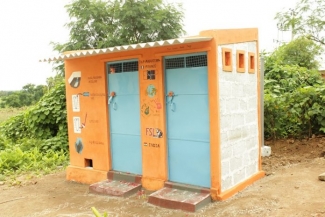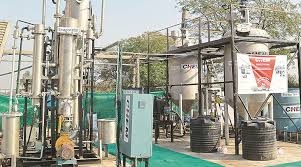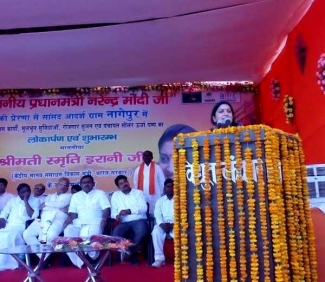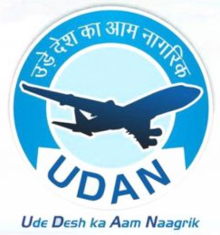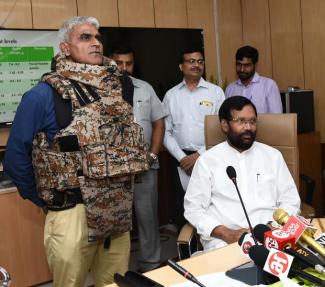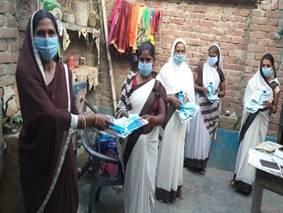
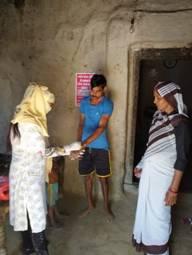
Suresh Kumar, a 20-year-old native of Bahraich (Huzorpur Block, Nibuhi Kala village), worked at a juice shop in Mumbai city. He returned home along with other migrant workers in a truck in early May, 2020 after travelling for five days. As soon as Suresh reached home, the local ASHA Chandra Prabha met him and recorded his details. She informed the Rapid Response Team (RRT) of district Bahraich, which advised Suresh to quarantine himself at home. Chandra Prabha also counselled the family members and explained in detail the steps to be taken during home quarantine. She undertook regular follow up visits and kept in touch with the family. Her alertness, motivational skills and support ensured that as soon as Suresh began experiencing symptoms, he was sent to the Community Health Centre, Chitaura, which is also a designated COVID Care facility. Chandra Prabha also ensured that Suresh’s family members and his fellow migrants were referred for COVID testing.
With the surge in the cases of COVID-19 in the country and the influx of migrant population from hotspot areas, one of the major challenges in Uttar Pradesh (UP) was to cater to the healthcare needs of returnees and arrest the spread in its rural population. ASHAs have played a critical role in supporting the state’s COVID-19 management during this crisis.
In a gigantic exercise, UP’s 1.6 lakh ASHAs have tracked over nearly 30.43 lakh migrant returnees in two phases- 11.24 lakh in the first and 19.19 lakh in the second phase. They have assisted in contact tracing and community level surveillance. The ASHAs not only identified 7965 persons with symptoms but also regularly followed up on their health status. They have facilitated sample collection from 2232 returnees of which 203 were found to be positive and were referred to COVID health care services. Nigrani Samitis (Vigilance Committee) have been formed in all the villages under the Gram Pradhan. The Samiti members/ volunteers community patrols keep in touch with the ASHAs and provide her details of the migrants in the village, who in turn help with the follow up on the migrants. ASHAs have played a critical role in sensitising the communities about the preventive measures to be adopted such as regular hand washing with soap and water, importance of wearing masks when out in public spaces, and maintaining adequate physical distancing. As a result of their efforts, there has been enhanced awareness about essential and non-essential healthcare services and how to access these. The ASHAs are provided basic protective gear like masks and soap/sanitizers as they go about their duties.
ASHAs have assisted the Panchayati Raj Department in development of the community quarantine centers, in buildings like Anganwadi centres and primary schools. They have ensured adoption of Aarogya Setu app at the community level through awareness generation and supporting in its installation.
The contribution of ASHAs in non-COVID essential services has been exemplary. At the Ayushman Bharat - Health and Wellness Centres, ASHAs are contributing in conducting line listing of all individuals, risk assessment and mobilization for screening for chronic illness like Hypertension, Diabetes, three cancers (oral, breast and cervical cancers), TB and Leprosy. They have also been instrumental in providing of Reproductive Maternal Neonatal and Child Health (RMNCH) services which were directly affected by the lockdown measures and the necessity of maintaining of physical distancing. They have created awareness about the availability of these services and helped people to access them.
The National Health Mission supports nearly 10 lakh ASHAs in rural and urban areas of most parts of the country. Nearly 1/6th (1.67 lakh) are from Uttar Pradesh.
Also read about ASHAs in Jharkhand... http://bharatmahan.in/positive-news/jharkhand-s-sahiyas-inspiration-community-health-workers
कोविड योद्धा: आशा कार्यकर्ता उत्तर प्रदेश में कोविड युद्ध में अग्रणी मोर्चे पर
1.6 लाख आशा कार्यकर्ताओं ने लौटने वाले 30.43 लाख प्रवासियों का पता लगाया
बहराइच (हुजुरपुर, ब्लाक, निबुही कला गांव) के रहने वाले 30 वर्षीय सुरेश कुमार मुंबई में एक जूस की दूकान पर काम करते थे। वह मई, 2020 के आरंभ में एक ट्रक में अन्य प्रवासी मजदूरों के साथ पांच दिनों की यात्रा करके घर लौटे। जैसे ही सुरेश घर पहुंचे तो स्थानीय आशा कार्यकर्ता चंद्र प्रभा ने उनसे मुलाकात की और उसके विवरणों को रिकॉर्ड किया। उन्होंने बहराइच जिले की स्थानीय त्वरित अनुक्रिया टीम (आरआरटी) को जानकारी दी जिन्होंने सुरेश को घर पर क्वारांटाइन करने का सुझाव दिया। चंद्र प्रभा ने उसके परिवार के सदस्यों की भी काउंसिलिंग की और विस्तार से समझाया कि घर पर क्वारांटाइन करने के दौरान क्या कदम उठाये जाने चाहिए। वह नियमित रूप से अनुवर्ती कार्रवाई के लिए उसके घर जाती रहीं और उसके परिवार के संपर्क में रहीं। उनकी सर्तकता, प्रेरणादायी कौशलों एवं सहायता ने यह सुनिश्चित किया कि जैसे ही सुरेश में इसके लक्षण दिखाई पड़ने लगे, उन्हें तत्काल चितौरा के समुदाय स्वास्थ्य केंद्र भेज दिया गया जो एक प्राधिकृत कोविड देखभाल सुविधा केंद्र है। चंद्र प्रभा ने यह भी सुनिश्चित किया कि सुरेश के परिवार के सदस्यों तथा उसके सहयोगी प्रवासियों को कोविड की जांच के लिए रेफर किया जाए।
देश में कोविड-19 के मामलों में तेज बढोत्तरी एवं हॉटस्पॉट क्षेत्रों से प्रवासी आबादी के प्रवेश के साथ, उत्तर प्रदेश (उप्र) की बड़ी चुनौतियों में एक लौटने वालों की स्वास्थ्य आवश्यकताओं की पूर्ति करना एवं इसकी ग्रामीण आबादी में इस बीमारी के प्रसार को रोकना था। आशा कार्यकर्ताओं ने इस संकट के दौरान कोविड-19 प्रबंधन की सहायता करने में महत्वपूर्ण भूमिका निभाई है।
इस विशाल प्रक्रिया में उत्तर प्रदेश की 1.6 लाख आशा कार्यकर्ताओं ने दो चरणों में-पहले चरण में 11.24 लाख एवं दूसरे चरण में 19.19 लाख-लौटने वाले लगभग 30.43 लाख प्रवासियों का पता लगाया। उन्होंने कौंटैक्ट ट्रेसिंग एवं समुदाय स्तर निगरानी में सहायता की। आशा कार्यकर्ताओं ने न केवल लक्षणों वाले 7965 व्यक्तियों का पता लगाया बल्कि नियमित रूप से उनके स्वास्थ्य की स्थिति पर नजर रखी। उन्होंने लौटने वाले 2232 व्यक्तियों से नमूना संग्रह में सहायता की जिसमें से 203 पोजिटिव पाए गए तथा कोविड स्वास्थ्य देखभाल सेवाओं के लिए रेफर किए गए। ग्राम प्रधान के तहत सभी गांवों में निगरानी समितियों का गठन किया गया है। समिति के सदस्य/स्वयंसेवी कार्यकर्ता आशा कार्यकर्ताओं के संपर्क में रह कर पहरेदारी करते हैं और उन्हें गांव में प्रवासियों के बारे में जानकारी मुहैया कराते हैं जो इसके बाद प्रवासियों से जुड़े अनुवर्ती कार्रवाइयों में उनकी सहायता करती हैं। आशा कार्यकर्ताओं ने बचाव संबंधी उपायों जैसेकि साबुन और पानी के साथ नियमित रूप से हाथ धोने, सार्वजनिक स्थान पर जाने से पहले मास्क लगाने के महत्व एवं समुचित सामाजिक दूरी बनाये रखने आदि के बारे में समुदायों को संवेदनशील बनाने में महत्वपूर्ण भूमिका निभाई हैं। उनकी कोशिशों के परिणामस्वरूप, अनिवार्य एवं गैर अनिवार्य स्वास्थ्य सेवाओं तथा इन्हें कैसे प्राप्त किया जाए, के बारे में काफी जागरुकता आ गई है। जब वे अपनी ड्यूटी पर जाती हैं तो आशा कार्यकर्ताओं को मास्क तथा साबुन/सैनिटाइजर जैसी मूलभूत प्रोटेक्टिव गियर उपलब्ध कराये जाते हैं।
आशा कार्यकर्ताओं ने समुदाय क्वारांटाइन केंद्रों के विकास, आंगनवाड़ी केंद्रों तथा प्राथमिक विद्यालयों के निर्माण में पंचायती राज विभाग की सहायता की है। उन्होंने इसके बारे में जागरूकता फैलाने में मदद करने के जरिये समुदाय स्तर पर आरोग्य सेतु ऐप का अनुपालन किया जाना सुनिश्चित किया है।
गैर-कोविड अनिवार्य सेवाओं में आशा कार्यकर्ताओं का योगदान असाधारण रहा है। आयुष्मान भारत-स्वास्थ्य एवं कल्याण केंद्रों में, आशा कार्यकर्ता सभी व्यक्तियों की लाइन लिस्टिंग, जोखिम आकलन और हाइपरटेंशन, मधुमेह, तीन प्रकार के कैंसरों (ओरल, ब्रेस्ट एवं सरवाइकल कैंसरों), तपेदिक और कुष्ठ जैसी पुरानी बीमारियों की स्क्रीनिंग के लिए प्रेरित करने में योगदान दे रही हैं। वे प्रजनन मातृ नवजात और शिशु स्वास्थ्य (आरएमएनसीएच) सेवाएं उपलब्ध कराने में, जो लॉकडाउन कदमों तथा सामाजिक दूरी बनाये रखने की आवश्यकता के कारण प्रत्यक्ष रूप से प्रभावित हुई थीं, भी महत्वपूर्ण भूमिका निभाती रही हैं। उन्होंने इन सेवाओं की उपलब्धता के बारे में जागरूकता का प्रसार किया है और लोगों तक इसकी सुविधा पहुंचाने में सहायता की है।
राष्ट्रीय स्वास्थ्य मिशन देश के अधिकांश हिस्सों के ग्रामीण एवं शहरी क्षेत्रों में लगभग 10 लाख आशा कार्यकर्ताओं की सहायता करता है। इसका लगभग छठा हिस्सा (1.67 लाख) उत्तर प्रदेश से संबंधित है।






